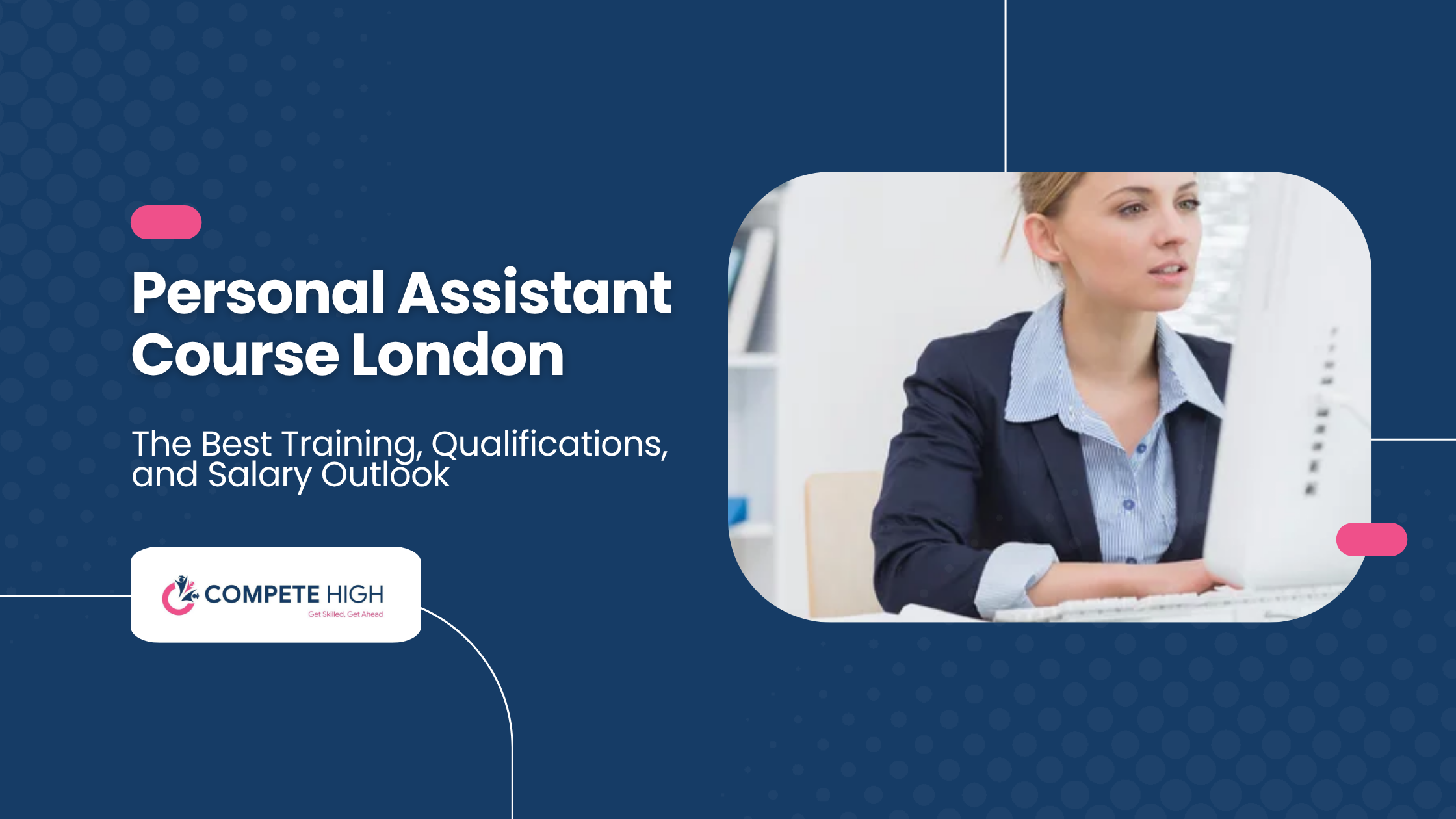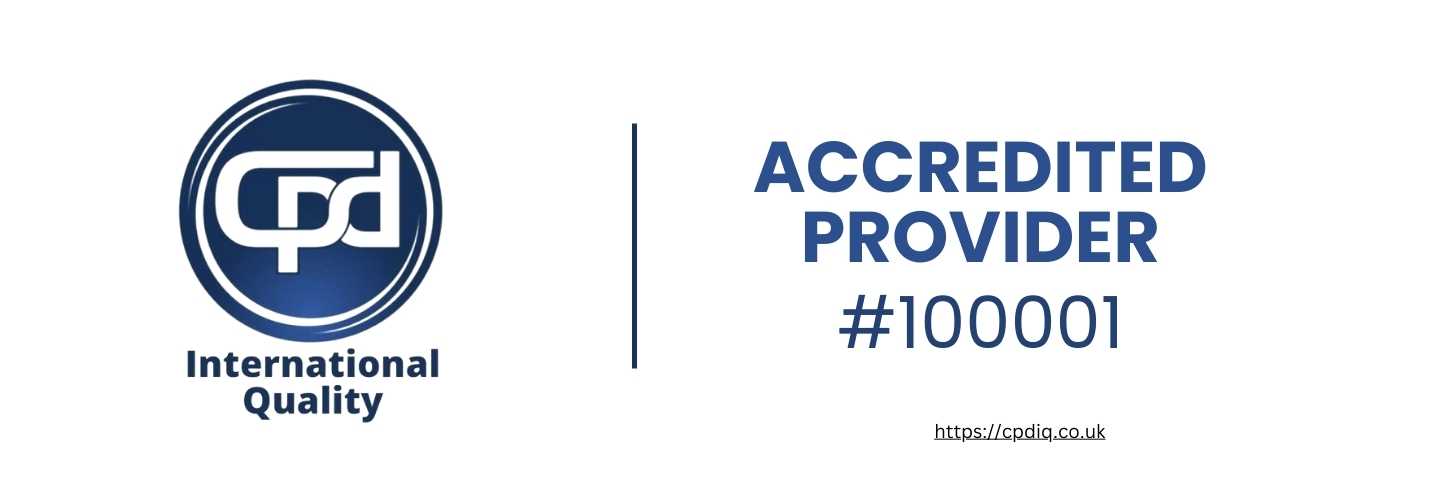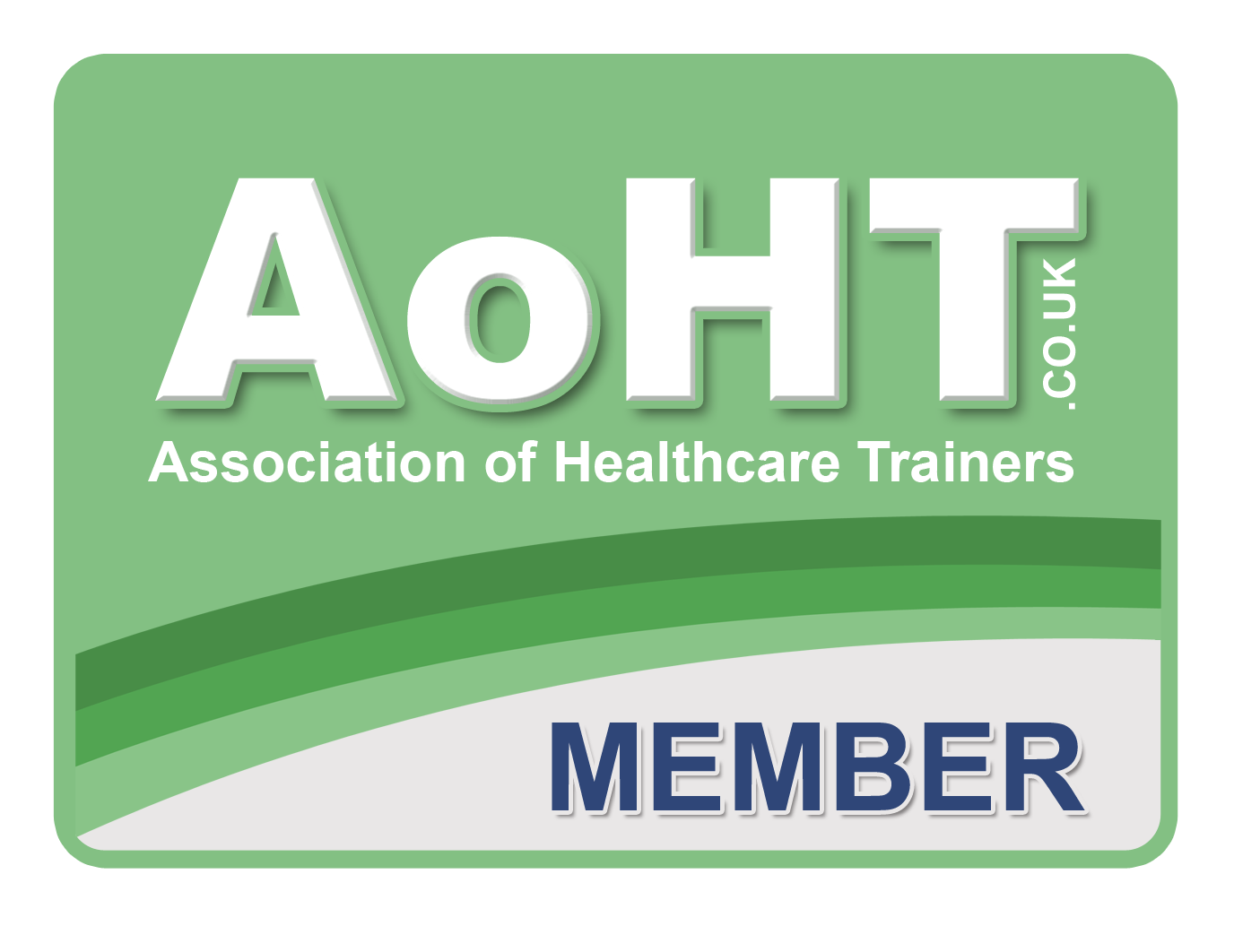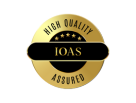
Having a personal assistant (PA) can be the difference between chaos and control in the fast-paced business world. Along the communication channels and through all the routine tasks handled by executives, PAs support office operations seamlessly. Personal assistants have become the backbone of efficient offices in London and beyond.
With the rise of complex business operations, the need for trained PAs has grown significantly. The need of the hour is the ability to multitask and communicate effectively while maintaining a professional veil of confidentiality.
Quick Overview
When someone completes a personal assistant course London, it’s important to understand how this qualification can open doors to exciting career paths across various industries. You’ll discover why training is essential, how it enhances your skills, and what opportunities await after certification.
Whether you’re new to administration or looking to advance your career, this guide covers:
✅ The key benefits of taking a personal assistant course in London.
✅ What qualifications and skills are needed to become a successful PA.
✅ How to start and grow your PA career in London’s competitive job market.
✅ The highest-paying personal assistant roles and potential career progression.
For those looking to become PAs in London, the time to consider your options is now. This blog explores everything from the qualifications required and the wages you can expect after employment, to the best personal assistant course London has to offer. If you’re wondering which course is best for a personal assistant, we’ll guide you through the top training options to help you launch a successful career as a PA.
The Role of a Personal Assistant in London
A personal assistant is much more than just someone who manages calendars or books meetings. In London, the business world is fast-paced and constantly evolving. A PA, especially one working for an executive, carries a great deal of responsibility. The ability to adapt, stay organised, and, most importantly, maintain discretion is of utmost priority in such a role. With so many moving parts, it’s easy to feel overwhelmed in such a demanding environment. However, the world of a PA extends far beyond routine office tasks.
A PA’s daily responsibilities can include:
- Managing schedules and booking appointments
- Preparing reports, correspondence, and presentations
- Handling emails and phone calls on behalf of executives
- Organising travel, accommodation, and event logistics
- Liaising with clients, suppliers, and team members
- Maintaining records and ensuring deadlines are met
Essentially, a PA acts as the right hand of the person they support. They anticipate needs, solve problems before they arise, and ensure everything runs smoothly. The best PAs are proactive rather than reactive — they don’t just follow instructions but actively find ways to make their executive’s life easier and more productive.

For anyone considering a personal assistant course London offers a variety of excellent training options to develop these vital skills. If you’ve ever wondered which course is best for a personal assistant, understanding the core responsibilities of the role is the first step towards choosing the right programme to suit your career goals.
Why Take a Personal Assistant Course in London?
London is not only the UK’s capital but also one of the most competitive job markets in Europe. Companies here, from financial firms to tech startups, value employees who have formal training and recognised qualifications.Taking a personal assistant course London can give you a strong competitive edge and open doors to a rewarding career in a wide range of industries.
1. Professional Credibility
Employers in London appreciate candidates who take the initiative to gain certification. Completing a personal assistant course in London shows you’re serious about your career and that you’ve mastered essential administrative and interpersonal skills.
2. Training That Meets Industry Standards
PA courses in London are designed to meet real-world business needs. You will learn vital skills such as time management, business communication, computer literacy, event planning, and office administration — all of which are highly valued in today’s modern workplaces.
3. Flexible Career Options
A qualified PA can work in virtually any sector, including law, healthcare, media, government, and more. Whether you aim to become an executive assistant (EA) in a corporate setting or a private PA for a high-profile individual, personal assistant course London programmes provide the right foundation to succeed.
4. Networking Prospects
As a major hub for professionals and global companies, London offers excellent networking opportunities, job fairs, and direct contact with potential employers. Students who study in person often gain valuable connections that online learners outside London might not easily access.
5. Increased Earning Potential
Current statistics reveal that PAs in London earn some of the highest salaries in the UK. Completing a recognised personal assistant course London can lead to prestigious, well-paid positions in sectors such as law, finance, and executive management. If you’re wondering how much does a personal assistant cost in London, the rates can vary depending on experience, qualifications, and the level of responsibility — but trained professionals typically command impressive salaries compared to the national average.
What Do Personal Assistant Courses Cover?
In London, personal assistant training courses cover a wide range of areas, including administrative and interpersonal skills. Each personal assistant course London offers combines both hard and soft skills to prepare students for success in professional environments.
This is what personal assistant courses typically include:
1. Business Guidelines and Office Administration
You will learn office procedure management, data organisation, and filing system maintenance, along with other hands-on administrative activities. Training also includes practical experience with Microsoft Office Suite, Google Workspace, and other essential office management tools.
2. Communication and Interpersonal Skills
Every personal assistant must master effective communication to perform their role efficiently. Courses include training in business correspondence, meeting etiquette, professional writing, and interpersonal interaction — even handling difficult conversations with confidence.
3. Time and Task Management
In a fast-paced work environment, competing priorities and tight deadlines are the norm. You will learn proven time management techniques to ensure every task is completed efficiently and on schedule.

4. Event and Travel Coordination
You’ll gain valuable knowledge in organising corporate events, meetings, and business travel. This includes itinerary planning, budget management, and logistics coordination — key skills for any high-level PA.
5. IT and Digital Competence
With technology playing such an essential role in modern offices, every PA needs a strong grasp of digital tools. A personal assistant course London often includes IT training in spreadsheets, scheduling software, basic databases, and project management tools such as Asana and Trello.
6. Professionalism and Confidentiality
Confidentiality and professionalism are core principles of the PA role. Training emphasises ethical conduct, discretion, and the importance of maintaining privacy when handling sensitive information.
7. Career Development and Personal Branding
Many of the best personal assistant courses in London also include career development guidance. You’ll receive help with creating a competitive CV, optimising your LinkedIn profile, and improving your interview techniques to stand out in London’s competitive job market.
If you’re asking what qualifications do I need to be a personal assistant, completing a recognised personal assistant course London provides the foundation employers look for. These qualifications demonstrate your competence, professionalism, and readiness to take on high-level administrative responsibilities.
Which Course Is Best for a Personal Assistant?
There isn’t a single “best” course, as the right choice will depend on your goals, level of experience, and budget. However, London is home to many reputable institutions that provide high-quality training for Personal Assistants (PAs) and Executive Assistants (EAs), offering both in-person and online learning options.
When choosing a personal assistant course London offers, it’s important to consider several key factors to ensure you’re investing in the right programme for your career development.
What to Look for in a Personal Assistant Course in London
- Accreditation: Choose a provider recognised by a respected UK awarding body such as CPD, ILM, or City & Guilds. Accreditation guarantees that your qualification will be credible and valued by employers.
- Curriculum: Select courses that offer a well-balanced curriculum covering both technical administrative skills and essential interpersonal abilities, ensuring you’re ready for the demands of the modern workplace.
- Flexibility: If you’re already employed, consider a part-time or weekend course. Many personal assistant course London programmes offer flexible schedules to suit working professionals.
- Career Support: Some training providers include career coaching or job placement assistance, helping you transition smoothly into a PA role after completing your studies.
- Reviews and Outcomes: Always review student testimonials and graduate success rates to gauge how effective the course is in helping learners secure employment.
If you’re a complete beginner, short foundation courses or diplomas at Levels 2–3 are excellent starting points. For those with prior administrative experience, advancing to an Executive PA Diploma or a Level 4 Business Administration qualification can be a great next step.
For anyone wondering what qualifications do I need to be a personal assistant, completing a recognised personal assistant course London provides the essential skills, confidence, and credentials to stand out in the capital’s competitive job market.
Qualifications Needed to Become a Personal Assistant in London
The great thing about becoming a personal assistant is that there are plenty of opportunities, and there’s no single rigid entry route. Some professionals move into the role directly from school, while others transition from administrative or customer service positions. However, having the right qualifications can make all the difference in London’s competitive job market.
1. Educational Background
For a personal assistant role in the UK, employers usually expect at least a Level 3 qualification, such as A Levels, a BTEC National Diploma, or an equivalent certificate in business or administration. Many successful PAs also hold an HND (Higher National Diploma) or even a degree in Business Management, Communications, or Office Administration.
While formal education helps, what matters most is developing the appropriate skill set — which is why enrolling in a personal assistant course London offers can be an excellent way to stand out. These courses provide both the theoretical knowledge and practical skills needed to perform at a professional level.
2. Professional PA or Executive Assistant Training
The personal assistant courses in London are designed to give you the practical experience and business insight required to work confidently in demanding professional environments. Most of these programmes teach time management, business correspondence, IT tools, and high-level communication skills — all crucial for career success.

Common qualification routes include:
- Level 2 or Level 3 Diplomas in Business and Administration
- Level 3 Certificate in Professional PA and Administration Skills
- Level 4 Executive PA Diploma
- CPD-Certified Personal Assistant Training
- NVQ in Business and Administration
These qualifications are recognised across the UK, and employers in London’s corporate sector value them as proof of skill, professionalism, and readiness for responsibility.
3. IT and Software Skills Required for Business Administration
Modern PAs must be comfortable with technology and efficient in using office software and digital tools. Proficiency in Microsoft Office (Word, Excel, PowerPoint, Outlook), Google Workspace, and project management software such as Asana or Trello is often essential. Many personal assistant course London programmes also include IT certifications, which can further enhance employability.
4. Communication and Writing Proficiency
Strong written and verbal communication skills are vital for every PA. The role often involves writing emails, reports, and meeting notes — all requiring a professional tone and attention to detail. For those whose first language isn’t English, completing a Business English or Communication Skills module alongside your personal assistant course London can be very beneficial.
If you’re also curious about how much do personal assistants get paid in London, salaries can vary depending on experience, qualifications, and the industry. However, trained and certified PAs in London typically earn higher-than-average wages, especially those who have completed recognised professional training and gained valuable experience.
Essential Skills Every Personal Assistant Should Have
Qualifications may get you through the door — but your skills will determine how far you go in this profession. Personal assistants need to demonstrate initiative, emotional intelligence, and strong social awareness. Trustworthiness and discretion are also highly valued traits that define a successful PA. Whether you’re just starting out or taking a personal assistant course London offers, developing the following key skills is essential for long-term success.
1. Organisation and Time Management
A great PA keeps everything — and everyone — on schedule. You’ll be expected to juggle multiple priorities, manage meetings, and ensure that deadlines are met. Many personal assistant course London programmes place significant emphasis on mastering scheduling, prioritisation, and efficient workflow systems.
2. Communication and Interpersonal Skills
You’ll regularly interact with colleagues, clients, and senior executives. Strong communication and interpersonal skills help you build positive professional relationships, resolve conflicts effectively, and represent your employer with confidence and professionalism.
3. Protecting Personal and Business Information
PAs often handle confidential and sensitive information. Discretion, reliability, and integrity are essential traits that will define your reputation throughout your career.
4. Problem Anticipation and Initiative
You will often be the first to identify and address potential issues before they escalate. From last-minute travel changes to overlapping meetings, a proactive mindset and quick problem-solving skills are crucial.
5. Flexibility and Efficiency
No two days as a PA are the same. You may be preparing presentations one moment and coordinating an urgent request the next. The ability to stay calm, adaptable, and efficient under pressure is one of the most important qualities in this field.
6. Tech Proficiency
Modern PAs must be confident using technology. Competence in Microsoft Office, Google Workspace, scheduling tools, and online collaboration platforms is essential. Many personal assistant course London options also include IT training modules to strengthen these skills and keep you ahead in the digital workplace.
7. Business-like Attitude
As a PA, you are a direct reflection of your executive and the organisation. Maintaining a professional, composed, and confident attitude in all interactions builds trust and enhances your credibility.

If you’re wondering how much is the salary of a personal assistant, it typically depends on experience, qualifications, and the industry you work in. However, PAs who have completed a recognised personal assistant course London and developed a strong skill set often command some of the most competitive salaries in the UK — especially in sectors such as finance, law, and executive management.
How to Start a Career as a Personal Assistant in London
If you’re at the beginning of your journey to becoming a personal assistant, here’s a step-by-step plan to help you start strong and develop the skills needed for career progression. Whether you’re new to the workforce or changing careers, there are plenty of opportunities in London to grow within this rewarding profession.
1. Gain Foundational Knowledge
Begin your journey by enrolling in a personal assistant course London offers, or an equivalent online qualification. You’ll gain essential skills in administration, communication, and professional etiquette — all vital for success in a PA role. Short CPD-accredited courses are a great way to boost your employability and demonstrate your commitment to professional development. If you’re asking what are the qualifications for a PA, completing a recognised PA course is one of the best ways to build a strong foundation for your career.
2. Get Some Practical Experience
While studying, look for internships, volunteer placements, or part-time administrative roles. Many London employers are open to hiring entry-level candidates who show initiative and potential. Hands-on experience — such as managing communications for a local business or assisting with scheduling — adds valuable, real-world credibility to your CV.
3. Build a Professional CV and Online Profile
Once you complete your training, update your CV and LinkedIn profile to highlight your organisational and communication skills, certifications, and examples of problem-solving in past roles. Tailor each application to reflect your achievements and measurable impact rather than simply listing responsibilities.
4. Start with Entry-Level Positions
Search for roles such as Admin Assistant, Office Assistant, or Junior PA. These positions allow you to gain valuable insight into executive workflows and business operations. Many senior PAs and executive assistants in London began their careers in entry-level administrative roles and progressed as they built experience and confidence.
5. Establish Connections and Join Professional Organisations
Networking is invaluable when it comes to securing work in London. Consider joining the Executive & Personal Assistants Association (EPAA) or the Institute of Administrative Management (IAM). These organisations offer networking events, job boards, and training opportunities to help you connect with potential employers and peers.
6. Continue Learning and Upskilling
The workplace evolves rapidly, especially in a dynamic city like London. To stay competitive, pursue additional certifications in areas such as project management, business correspondence, or digital tools. Enrolling in advanced short courses or workshops — like those offered as part of a personal assistant course London — can help you remain up to date with new business technologies and practices.
7. Find a Mentor or Role Model
If possible, connect with an experienced PA or Executive Assistant who can offer guidance and mentorship. Having a mentor can help you understand workplace expectations, navigate challenges, and develop strategies for career growth in the busy London job market.
The Demand for Personal Assistants in London
Across London, the demand for skilled Personal Assistants (PAs) continues to grow — and for good reason. A talented PA does far more than simply manage diaries; they help streamline operations, boost productivity, and enable executives to use their time more strategically.
From creative agencies in Shoreditch to financial firms in Canary Wharf, PAs are becoming increasingly vital to business success. With the rise of remote and hybrid working, assistants can now support executives from virtually anywhere in the UK, further expanding the reach and flexibility of the profession.
A well-trained PA with a professional qualification from a recognised personal assistant course London offers can find opportunities across a wide range of industries, including:
- Finance and Banking
- Law and Consultancy
- Healthcare and Education
- Government and Public Administration
- Tech Startups and Creative Industries

Because of this wide scope, becoming a personal assistant can provide not only immediate job opportunities but also long-term career progression. Employers increasingly value candidates with the right mix of formal training, adaptability, and professional conduct.
If you’re considering entering this field and wondering what are the qualifications for a PA, most employers look for candidates who have completed relevant business or administrative training — often through a dedicated personal assistant course London provides. Such qualifications can significantly improve your employability and prepare you to meet the demands of high-level executive support roles.
With the profession’s growing recognition and evolving responsibilities, a career as a personal assistant in London offers both stability and strong potential for advancement.
Personal Assistant Salary in London
Salary expectations are a good indicator of what a career might offer, and personal assistants (PAs) in London can expect competitive pay. As the capital city and financial hub of the UK, London offers higher-than-average salaries for skilled administrative professionals.
In London, personal assistants typically earn between £28,000 and £50,000, according to various UK job boards and salary reports. However, this can vary based on experience, qualifications, and the type of organisation. Taking a personal assistant course London provides can help increase your earning potential by giving you the skills and confidence employers value most.
1. Entry-Level PA Salary
New PA graduates or those with little to no experience in London generally start with salaries ranging from £25,000 to £32,000 per year. These roles often involve supporting mid-level managers or small teams by managing schedules, coordinating correspondence, and handling day-to-day administrative duties.
Although entry-level salaries might appear modest, the growth potential in this career is excellent. Many employers also offer additional benefits, such as:
- Paid annual leave and pension contributions
- Travel or meal allowances
- Flexible or hybrid working arrangements
- Learning and development opportunities
For those wondering which course is best for PA at the start of their career, short CPD-accredited or Level 2–3 diploma courses can help you build essential foundational skills and improve employability.
2. Mid-Level PA Salary
With two to five years of experience, salary prospects rise significantly. Mid-level PAs working in demanding roles or prestigious firms — particularly within finance, law, or media — can expect to earn £35,000 to £45,000 annually.
In this position, PAs take on more central responsibilities such as project coordination, client interaction, and office management. Initiative, leadership, and strong communication skills often lead to quicker promotions and performance-based bonuses.
3. Senior or Executive Personal Assistant Salary
For experienced Executive Assistants or Senior PAs, salaries can reach between £50,000 and £70,000 per year — especially in multinational corporations or major London-based firms. These professionals support C-suite executives, managing directors, or board members with complex and high-level administrative tasks, such as:
- Overseeing junior administrative staff
- Monitoring budgets and handling confidential documents
- Organising international travel and large-scale events
- Coordinating cross-departmental or global projects
- Managing communication between executives and stakeholders
Some of the highest-paid private PAs — particularly those working in the entertainment, diplomatic, or legal sectors — can earn £80,000 or more through comprehensive remuneration packages.
If you’re aiming for top-tier roles, completing an advanced personal assistant course London offers — such as a Level 4 Executive PA Diploma — can help you stand out in a competitive job market.
Factors That Influence a PA’s Salary in London
The location of personal assistant salaries in the UK capital already boosts their value. However, several other factors can influence how much a PA earns in London.
1. Experience and Tenure
As with most professions, salary typically increases with experience. PAs who have spent several years in the role, especially in executive management support, are often compensated more. Reliability, longevity, and a proven track record in managing workflows are highly valued.

2. Industry Type
Salaries vary across industries. PAs working in finance, law, technology, or executive management generally earn more than those in non-profit, education, or local government roles. For example, a PA in an investment bank in Canary Wharf may earn significantly more than one working for a small charity.
3. Qualifications and Training
Completing a personal assistant course London can considerably enhance your earning potential. Employers value trained PAs who bring efficiency, professionalism, and up-to-date skills to their teams. Professionals with Level 4 Executive Diplomas or CPD certifications often have stronger negotiation power and higher starting salaries.
4. Company Size and Prestige
Larger companies and multinational organisations typically offer higher pay, especially for roles supporting senior executives. Such organisations may also provide additional perks such as annual bonuses, private healthcare, and extra paid leave.
5. Skills and Specialisations
PAs with specialised skills often command higher salaries. Expertise in event management, project coordination, bookkeeping, or multilingual communication adds significant value. Digital proficiency — including CRM tools, scheduling software, and data management — is increasingly sought after in London’s advanced corporate environment.
6. Working Hours and Flexibility
Supporting senior executives or international teams can involve extended or unpredictable hours. Positions that require flexibility often provide additional pay or benefits to compensate for these demands.
For those wondering how to start a career as a personal assistant in London, completing a personal assistant course London is an excellent first step. It provides the foundational knowledge, practical skills, and industry-recognised credentials that can help you secure your first role and position yourself for higher earnings in the future.
What is the Highest Pay for a Personal Assistant in London?
Private Executive Assistants, PAs, and Executive Assistants who serve as Chief of Staff to celebrities, CEOs, or high-net-worth individuals are among the highest paid in London.
These positions go beyond regular administrative roles, demanding advanced communication skills, discretion, and exceptional multitasking abilities. Depending on the employer and level of responsibility, these PAs can earn between £70,000 and over £100,000 per year.
Along with these roles in the private sector — particularly in entertainment, politics, or finance — PAs often receive additional benefits, including:
- Accommodation or travel expenses
- Discretionary travel
- Annual bonuses
- Health insurance and pension contributions
- Access to exclusive events and functions
Expectations are significant, and discretion is paramount. PAs in these roles must remain calm and composed in high-pressure situations.
Freelance and Virtual Personal Assistant Salaries
The rise of remote work has created more opportunities for freelance and virtual Personal Assistants. Many offer flexible services to multiple clients, working from home or coworking spaces.
In London, freelance Personal Assistants earn approximately £20–£40 per hour, depending on the complexity of the work and their experience. Virtual Assistants working remotely with UK businesses may earn slightly less, but they benefit from flexibility and exposure to a variety of clients. With motivation, time management, and discipline, a virtual assistant can earn comparable salaries to office-based counterparts.
Salary Growth and Career Progression
A career as a personal assistant in London offers strong growth potential. PAs can progress to executive roles such as:
- Executive Assistant (EA)
- Office Manager
- Project Coordinator or Project Manager
- Operations Manager
- Chief of Staff
Many personal assistants also transition into specialised areas like Human Resources, marketing, or business operations after gaining experience with senior management. The organisational, communication, and administrative skills developed in a PA role are highly transferable and valuable across industries.
Benefits of a Personal Assistant Career in London
- Job stability — High demand across multiple sectors
- Career diversity — Opportunities in almost every industry
- Personal satisfaction — Supporting senior professionals to achieve goals
- Growth potential — Opportunities to move into senior or managerial roles

For those wondering how to start a career as a personal assistant, completing a personal assistant course London is an ideal first step. It equips you with the practical skills, industry knowledge, and recognised qualifications that employers value, giving you a competitive advantage in London’s thriving PA job market.
How to Choose the Right Personal Assistant Course in London
Selecting the right personal assistant course London sets the foundation for your career. London offers a wide range of options, so it is important to narrow down your choices according to your goals, budget, and preferred learning style. Proper training is vital if you want to be proficient in the fast-paced demands of the role.
Here’s how to choose:
1. Consider Your Current Experience
- Little to no experience? Start with a foundation or Level 2–3 PA course. These programmes provide essential skills in business administration, communication, and IT.
- Prior experience in admin or secretarial work? Opt for advanced or Executive PA courses (Level 4 or above), which strengthen skills in leadership, corporate communication, and strategic decision-making.
2. Choose Accredited Providers
Ensure the course is recognised by reputable UK awarding bodies, such as City & Guilds, CPD, or ILM (Institute of Leadership and Management). Accreditation adds value to your CV and increases your chances of being accepted by employers.
3. In-Person and Online Learning
London offers both traditional classroom courses and flexible online options.
- In-person courses provide hands-on learning and networking opportunities with instructors, peers, and potential employers.
- Online or hybrid courses are ideal for those with work or family commitments, offering flexibility without compromising quality.
4. Review Course Content
A comprehensive personal assistant course London should include:
- Office and business administration
- Diary and travel management
- Professional communication
- IT and software training (Microsoft Office, Google Workspace)
- Event and meeting coordination
- Time and task management
- Business writing and etiquette
- Confidentiality and professionalism
- Career development workshops and mock interviews
5. Assess Job Support and Alumni Outcomes
Many leading training providers in London offer more than just instruction. Look for courses that provide:
- Job placement assistance
- Career counselling
- Networking events or internships
- Alumni success stories
These additional support features can give you a significant advantage when applying for your first PA job in London.
Completing the right course can also increase your earning potential, especially if you are aiming for top-tier positions. If you are wondering what is the highest pay for a personal assistant, graduates of recognised PA courses with Level 4 or Executive qualifications in London can access senior and executive roles, where salaries range from £70,000 to over £100,000, particularly in private, finance, or high-profile sectors.
Career Options After Finishing a Personal Assistant Course
Completing a personal assistant course London opens up various career pathways. While the PA role remains dynamic, it also offers unique opportunities for leadership and strategic responsibility. Few administrative roles provide such clear routes into management and corporate communications.
Here are several career options to consider:
1. Moving from PA to Executive Assistant
Many PAs, after gaining a few years of experience, progress to an Executive Assistant (EA) role. EAs provide high-level support to executives such as CEOs, managing directors, and board members. These roles involve more trusted decision-making and handling strategic matters. In London, these positions typically offer salaries ranging from £50,000 to £70,000 per year.

2. Office Management Transition
Some PAs move into office management, taking charge of entire administrative teams and overseeing office operations. These senior positions command higher pay and increased respect within organisations.
3. Working in Business Operations and Project Coordination
With experience in scheduling, administration, and organisational support, PAs can step into roles managing business operations or coordinating projects. These positions expand your responsibilities and incorporate aspects of organisational strategy, offering valuable professional development.
4. Becoming a Virtual or Freelance PA
As businesses increasingly move online, many professionals offer virtual assistance to companies or individuals. Freelance work provides flexibility, allows you to work from home, and gives the opportunity to manage multiple clients. By building a strong online reputation, some virtual PAs earn more than their office-based counterparts.
5. Moving into Senior Management Support or Chief of Staff Roles
For experienced PAs, roles such as Chief of Staff or Senior Executive Support are natural career advancements. These positions involve managing teams, advising top executives, and influencing business strategy. In London, salaries for such roles can exceed £80,000, and well-trained PAs with the right experience—especially those who have completed a personal assistant course London—can achieve even higher compensation. For those aiming to answer what is the highest pay for a personal assistant, top private and executive PAs supporting high-profile individuals can earn £100,000+ depending on responsibilities and sector.
How to Succeed as a Personal Assistant in London
Being a PA involves far more than simply holding a qualification; self-improvement, adaptability, and professionalism are vital to your success. Here are some practical tips to stay ahead:
- Refresh your skills. Office technology and tools evolve rapidly. Keep pace by enrolling in short CPD-accredited courses and updating your knowledge of the latest software and methods.
- Build strong professional connections. Positive relationships can open doors to new roles and opportunities. Networking events and associations, such as the Executive & Personal Assistants Association (EPAA), can be invaluable.
- Show initiative and reliability. Anticipate needs and take charge where appropriate. Exceptional PAs understand their executive’s requirements without being prompted.
- Maintain composure under pressure. London’s work environment can be fast-paced and demanding. Remaining calm and collected will highlight your professionalism.
- Communicate effectively. Everything you say, write, or present should be clear and appropriate in tone. Strong communication reflects confidence and competence.
Become a Personal Assistant
Education is a key factor in advancing your career. Completing a personal assistant course London provides a structured pathway into the profession and helps you build a valuable network—essential for securing positions in this competitive field.
Investing in training enhances your prospects with global corporations, private firms, and prestigious organisations across the UK. Courses are available both online and in-person, offering practical, career-focused content approved by recognised institutions.
Upon completing your training, you will be well-positioned for rewarding job opportunities and long-term professional growth. The skills acquired—organisation, communication, leadership, and discretion—remain relevant across industries and will help you excel in any role.
Conclusion
In London, becoming a personal assistant is one of the most empowering and straightforward career decisions. The city’s corporate culture is supportive of determined and well-trained individuals. By completing a personal assistant course London and developing the corresponding skills, your career aspirations become both attainable and rewarding.
You could start as a PA for a CEO in the financial district, a creative director in Soho, or a private client in Kensington. London offers professional opportunities across virtually every industry. The journey to becoming a reliable personal assistant begins with one important step: enrolling in a personal assistant course London to build the foundation for a successful career.










